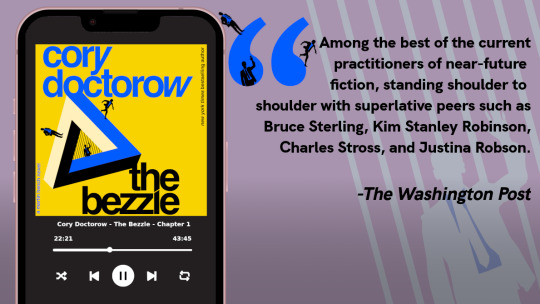#Business app
Text
Did you know that mobile apps are reshaping how wind farms are managed?
Dive into our latest blog post to uncover the incredible role of mobile apps in wind farm management. From real-time monitoring and predictive analytics to remote control and maintenance, these apps are reshaping the renewable energy landscape.
Don't miss out on this insightful read that explores the intersection of technology and sustainable power generation.
#appdevelopment#mobileapp#mobileappdevelopers#technology#renewableenergy#wind energy#business app#usa#mobio solutions
6 notes
·
View notes
Text

Unlock the Potential of Your Business with Our Custom Mobile Apps - Build the Future of Your Success!
6 notes
·
View notes
Text
Ditch the Pile, Embrace the Power: Why Your Talent Needs a Tech Ally!
Imagine: endless resumes, chaotic emails, and scheduling interviews for a dozen open positions. Sounds like a hiring nightmare, right?
Enter Talent Acquisition Management (TAM) software – your superhero sidekick in the fight for top talent.
Why go tech?
Supercharge your efficiency: Automate tasks, centralize information, and free up time for strategic magic!
Become a sourcing sorcerer: Find hidden gems beyond the usual job boards with AI-powered matching and advanced search.
Rock the candidate experience: Keep them informed with automated updates and offer a smooth application process through user-friendly interfaces.
Unlock data-driven insights: Analyze trends, make informed decisions, and optimize your strategy like a pro.
Save time, save money, save sanity: Reduce costs, mitigate risks, and focus on what matters – building your dream team!
Stop battling the hiring chaos, embrace the power of TAM software.
0 notes
Text
Complete Business Solution
Business Classo is an innovative app that stands as a beacon for entrepreneurs seeking a comprehensive and efficient approach to managing their businesses. Positioned as a Complete Business Solution, this app seamlessly integrates a myriad of features to streamline various facets of business operations. From robust project management tools to advanced customer relationship management (CRM) functionalities, Business Classo serves as an all-encompassing platform tailored to meet the diverse needs of modern enterprises. One of its standout features is the integration of financial tools, offering accounting, invoicing, and expense tracking capabilities, providing a holistic financial overview for businesses of all sizes. The app's user-friendly interface ensures accessibility for users with varying levels of technological expertise, fostering a more inclusive approach to business management. Furthermore, Business Classo places a significant emphasis on collaboration, offering real-time communication channels and document-sharing capabilities. This collaborative ecosystem not only enhances internal team dynamics but also strengthens external partnerships. The app's scalability is a notable asset, accommodating the growth trajectory of businesses as they expand and evolve. Whether a startup looking to establish its presence or an established enterprise aiming to optimize processes, Business Classo is adept at catering to diverse business needs. The app also takes a forward-thinking approach by incorporating data analytics and business intelligence tools, empowering users to make informed decisions based on insightful data trends. In an era where digital transformation is imperative, Business Classo emerges as a beacon of efficiency, offering a harmonious blend of functionality and user-friendliness. With its commitment to providing a Complete Business Solution, this app has the potential to redefine how businesses operate, setting a new standard for comprehensive and integrated business management platforms.

0 notes
Text
1 note
·
View note
Text
POWER UP YOUR ENTERPRISE WITH MOBILE APPS
Get Mobile Application Development for your business. Call Now.
#mobile application development#mobile app#ios app development#android app development#application deveopment#app developer#app development#mobile app development company#enterprise mobility#mobility apps#business app#shopping app#get your app today#venusgeo#software#app#mobile application
1 note
·
View note
Text

BizNetBazar is a free and easy-to-use business networking platform. Users can search and connect with manufacturers, wholesalers, retailers, and service providers based on purchase requirements. Businesses can grow their digital presence and connect with potential customers.
Android App Link: https://play.google.com/store/apps/details?id=sysnotion.com.biznetbazar
Website: www.biznetbazar.com
#onlinebusiness#business#list your business#business app#growyourbusiness#biznetbazar#vocalforlocal#small business#supportlocalbusiness#manufacturer#wholesaler#retailer
0 notes
Text
OfficeSuite Pro + PDF v13.10.47670 Paid MOD apk free download for android
#officesuitepro #msoffice #googleoffice #pdfviewer #excel #msword #business #gamusera #apps
0 notes
Text
Business app in India - TradeIndia
Introducing the TradeIndia Business App - your one-stop solution for seamless business operations in India. This powerful mobile application is designed to revolutionize the way you conduct business, offering convenience and efficiency at your fingertips. With the TradeIndia Business App, you can effortlessly connect with suppliers, manufacturers, and buyers across the country, enhancing your reach and expanding your network. Stay updated with real-time inquiries, negotiate deals, and manage your business transactions effortlessly. Experience the future of business with TradeIndia - the leading platform that empowers you to thrive in the dynamic Indian market. Download the app now and unlock endless opportunities for success.

#trade india#b2b business#b2b market app#shopping app in india#wholesale shopping app in india#business app
0 notes
Text
Ultimate Travel App for Finding What's Around You
Find the best things to do with JoynD - the ultimate travel app for discovering what's around you. Connect with local businesses and explore your surroundings. Download now!
0 notes
Text
0 notes
Text
How lock-in hurts design

Berliners: Otherland has added a second date (Jan 28) for my book-talk after the first one sold out - book now!

If you've ever read about design, you've probably encountered the idea of "paving the desire path." A "desire path" is an erosion path created by people departing from the official walkway and taking their own route. The story goes that smart campus planners don't fight the desire paths laid down by students; they pave them, formalizing the route that their constituents have voted for with their feet.
Desire paths aren't always great (Wikipedia notes that "desire paths sometimes cut through sensitive habitats and exclusion zones, threatening wildlife and park security"), but in the context of design, a desire path is a way that users communicate with designers, creating a feedback loop between those two groups. The designers make a product, the users use it in ways that surprise the designer, and the designer integrates all that into a new revision of the product.
This method is widely heralded as a means of "co-innovating" between users and companies. Designers who practice the method are lauded for their humility, their willingness to learn from their users. Tech history is strewn with examples of successful paved desire-paths.
Take John Deere. While today the company is notorious for its war on its customers (via its opposition to right to repair), Deere was once a leader in co-innovation, dispatching roving field engineers to visit farms and learn how farmers had modified their tractors. The best of these modifications would then be worked into the next round of tractor designs, in a virtuous cycle:
https://securityledger.com/2019/03/opinion-my-grandfathers-john-deere-would-support-our-right-to-repair/
But this pattern is even more pronounced in the digital world, because it's much easier to update a digital service than it is to update all the tractors in the field, especially if that service is cloud-based, meaning you can modify the back-end everyone is instantly updated. The most celebrated example of this co-creation is Twitter, whose users created a host of its core features.
Retweets, for example, were a user creation. Users who saw something they liked on the service would type "RT" and paste the text and the link into a new tweet composition window. Same for quote-tweets: users copied the URL for a tweet and pasted it in below their own commentary. Twitter designers observed this user innovation and formalized it, turning it into part of Twitter's core feature-set.
Companies are obsessed with discovering digital desire paths. They pay fortunes for analytics software to produce maps of how their users interact with their services, run focus groups, even embed sneaky screen-recording software into their web-pages:
https://www.wired.com/story/the-dark-side-of-replay-sessions-that-record-your-every-move-online/
This relentless surveillance of users is pursued in the name of making things better for them: let us spy on you and we'll figure out where your pain-points and friction are coming from, and remove those. We all win!
But this impulse is a world apart from the humility and respect implied by co-innovation. The constant, nonconsensual observation of users has more to do with controlling users than learning from them.
That is, after all, the ethos of modern technology: the more control a company can exert over its users ,the more value it can transfer from those users to its shareholders. That's the key to enshittification, the ubiquitous platform decay that has degraded virtually all the technology we use, making it worse every day:
https://pluralistic.net/2023/02/19/twiddler/
When you are seeking to control users, the desire paths they create are all too frequently a means to wrestling control back from you. Take advertising: every time a service makes its ads more obnoxious and invasive, it creates an incentive for its users to search for "how do I install an ad-blocker":
https://www.eff.org/deeplinks/2019/07/adblocking-how-about-nah
More than half of all web-users have installed ad-blockers. It's the largest consumer boycott in human history:
https://doc.searls.com/2023/11/11/how-is-the-worlds-biggest-boycott-doing/
But zero app users have installed ad-blockers, because reverse-engineering an app requires that you bypass its encryption, triggering liability under Section 1201 of the Digital Millennium Copyright Act. This law provides for a $500,000 fine and a 5-year prison sentence for "circumvention" of access controls:
https://pluralistic.net/2024/01/12/youre-holding-it-wrong/#if-dishwashers-were-iphones
Beyond that, modifying an app creates liability under copyright, trademark, patent, trade secrets, noncompete, nondisclosure and so on. It's what Jay Freeman calls "felony contempt of business model":
https://locusmag.com/2020/09/cory-doctorow-ip/
This is why services are so horny to drive you to install their app rather using their websites: they are trying to get you to do something that, given your druthers, you would prefer not to do. They want to force you to exit through the gift shop, you want to carve a desire path straight to the parking lot. Apps let them mobilize the law to literally criminalize those desire paths.
An app is just a web-page wrapped in enough IP to make it a felony to block ads in it (or do anything else that wrestles value back from a company). Apps are web-pages where everything not forbidden is mandatory.
Seen in this light, an app is a way to wage war on desire paths, to abandon the cooperative model for co-innovation in favor of the adversarial model of user control and extraction.
Corporate apologists like to claim that the proliferation of apps proves that users like them. Neoliberal economists love the idea that business as usual represents a "revealed preference." This is an intellectually unserious tautology: "you do this, so you must like it":
https://boingboing.net/2024/01/22/hp-ceo-says-customers-are-a-bad-investment-unless-they-can-be-made-to-buy-companys-drm-ink-cartridges.html
Calling an action where no alternatives are permissible a "preference" or a "choice" is a cheap trick – especially when considered against the "preferences" that reveal themselves when a real choice is possible. Take commercial surveillance: when Apple gave Ios users a choice about being spied on – a one-click opt of of app-based surveillance – 96% of users choice no spying:
https://arstechnica.com/gadgets/2021/05/96-of-us-users-opt-out-of-app-tracking-in-ios-14-5-analytics-find/
But then Apple started spying on those very same users that had opted out of spying by Facebook and other Apple competitors:
https://pluralistic.net/2022/11/14/luxury-surveillance/#liar-liar
Neoclassical economists aren't just obsessed with revealed preferences – they also love to bandy about the idea of "moral hazard": economic arrangements that tempt people to be dishonest. This is typically applied to the public ("consumers" in the contemptuous parlance of econospeak). But apps are pure moral hazard – for corporations. The ability to prohibit desire paths – and literally imprison rivals who help your users thwart those prohibitions – is too tempting for companies to resist.
The fact that the majority of web users block ads reveals a strong preference for not being spied on ("users just want relevant ads" is such an obvious lie that doesn't merit any serious discussion):
https://www.iccl.ie/news/82-of-the-irish-public-wants-big-techs-toxic-algorithms-switched-off/
Giant companies attained their scale by learning from their users, not by thwarting them. The person using technology always knows something about what they need to do and how they want to do it that the designers can never anticipate. This is especially true of people who are unlike those designers – people who live on the other side of the world, or the other side of the economic divide, or whose bodies don't work the way that the designers' bodies do:
https://pluralistic.net/2022/10/20/benevolent-dictators/#felony-contempt-of-business-model
Apps – and other technologies that are locked down so their users can be locked in – are the height of technological arrogance. They embody a belief that users are to be told, not heard. If a user wants to do something that the designer didn't anticipate, that's the user's fault:
https://www.wired.com/2010/06/iphone-4-holding-it-wrong/
Corporate enthusiasm for prohibiting you from reconfiguring the tools you use to suit your needs is a declaration of the end of history. "Sure," John Deere execs say, "we once learned from farmers by observing how they modified their tractors. But today's farmers are so much stupider and we are so much smarter that we have nothing to learn from them anymore."
Spying on your users to control them is a poor substitute asking your users their permission to learn from them. Without technological self-determination, preferences can't be revealed. Without the right to seize the means of computation, the desire paths never emerge, leaving designers in the dark about what users really want.
Our policymakers swear loyalty to "innovation" but when corporations ask for the right to decide who can innovate and how, they fall all over themselves to create laws that let companies punish users for the crime of contempt of business-model.

I'm Kickstarting the audiobook for The Bezzle, the sequel to Red Team Blues, narrated by @wilwheaton! You can pre-order the audiobook and ebook, DRM free, as well as the hardcover, signed or unsigned. There's also bundles with Red Team Blues in ebook, audio or paperback.

If you'd like an essay-formatted version of this post to read or share, here's a link to it on pluralistic.net, my surveillance-free, ad-free, tracker-free blog:
https://pluralistic.net/2024/01/24/everything-not-mandatory/#is-prohibited

Image:
Belem (modified)
https://commons.wikimedia.org/wiki/File:Desire_path_%2819811581366%29.jpg
CC BY 2.0
https://creativecommons.org/licenses/by/2.0/deed.en
#pluralistic#desire paths#design#drm#everything not mandatory is prohibited#apps#ip#innovation#user innovation#technological self-determination#john deere#twitter#felony contempt of business model
3K notes
·
View notes
Text

Vee Technologies offers custom and unique Business Applications Development services that transform business outcomes at an effective cost.
Visit: https://veetechnologies.com/services/it-services/business-application-development.htm
0 notes
Text
JoynD: The Game-Changing Business to Consumer Communication App
JoynD is a cutting-edge communication app that revolutionizes the way businesses interact with their customers. With its intuitive interface and user-friendly features, JoynD streamlines the communication process, making it easy for businesses to connect with their customers and vice versa.
JoynD is a game-changing app for businesses looking to improve their customer communication. It offers a comprehensive suite of features, high levels of security and privacy, and customization options that make it an essential tool for businesses of all sizes.
0 notes
